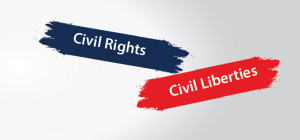Like waves eroding a beach, corruption slowly destroys any company, no matter how profitable. Corruption and petty politics is what caused the fall of Czech mining conglomerate, OKD. The Ostrava-Karviná mines are the only producers of black coal in the Czech Republic, but even holding that sway did not protect profits and sustainability. How does a company with a monopoly on a vital energy source go bankrupt? The Czech government made sure it would. Politicians and their business allies directly and indirectly caused the fall of the company, one of the largest in the country. A who’s who list of famous politicians had their hand in this case. Zeman, Klaus, Gross, Sobotka, and Babiš (Presidents, Finance Ministers, Prime Ministers) all benefitted from OKD’s bankruptcy. Czech courts are still unraveling the full picture of how these corrupt politicians had a part in OKD’s insolvency. However, in April, a Parliamentary Committee of Inquiry plans to release a report which should illustrate the corrupt practices of those involved.
The first dark hour for OKD came during the immediate Post-Communist period. During this time, voucher privatization was common in Soviet-bloc states. Then-Finance Minister Václav Klaus implemented it in the Czech Republic. Voucher privatization made it easier for state-owned companies to become privately owned, and Klaus thought this would help speed prosperity. Capitalism came to the Czech Republic and things were going well. This also made it easy for oligarchs to become prominent.
Whose Side is the OKD Inquiry Commission On?
The Committee of Inquiry for the OKD scandal was set up at the end of 2017. Per Czech law, the committee is made up of members from all political parties. Chairing the committee is Lukáš Černohorský of the Pirate Party. Looking at the makeup of the committee, it is easy to see that 6/9 of them come from the Moravian-Silesian region. This is for good reason, as this is one of the regions most affected by the corruption that forced OKD to the ground. There is one caveat: Because these Parliamentarians have affected miners as a large percentage of their constituency, who can say whether the findings will be based on truth or political interests? For example, what will voters of Lubomir Zaoralek say if he is part of a commission which publishes the truth but is not necessarily what the miners believe? Will he publish it at all or push for delays? Another member on the Inquiry Committee, Václav Klaus Jr. is a potential problem. As mentioned earlier, his father was Finance Minister when OKD was first privatized. Will the son dare issue a report questioning his father’s actions, let alone condemning them? While many have been called to testify, it is telling that President Zeman and Klaus Sr. have not been called, despite being prominent figures in the original privatization program. Zeman has been declared “off limits”, protecting him from having to admit to his millions of followers that he is as corrupt as they come. As the saying goes, he proclaims water but drinks himself wine.
Zdeněk Bakala, a Czech billionaire investor and financier, also believes there has been foul play. For years, politicians have lambasted him and accused him of embezzlement (never substantiated). Being the poster boy of economic liberalism and capitalism, Bakala is also a favorite scapegoat of those in charge. It is then no wonder that he would not want to testify in front of a Committee which may have made up their mind in absentia. Unfortunately, this Committee may have been influenced by political pressure, political acquaintances, or foreign interests, instead of doing what’s right for the Czech people.
Another question begging to be asked is what is the real reason behind this Commission? Courts have dockets full of OKD-related cases and can be trusted to act legally and impartially.
It is imperative that the Commission should remain uninfluenced and not be afraid to attribute blame to those legally responsible for the corruption. They must carefully hear testimony without whispers of the media and more powerful politicians in their ears. They must see the whole picture and consider facts carefully, going back to the beginning of OKD’s problems. We should give them a chance, until April, to reveal who is truly to blame for what happened.
In 2004, Bakala acquired Karbon Invest through his firm, Charles Capital. This meant that he was the effective owner of OKD, having acquired all Karbon’s assets.
The case of Zdenek Bakala against Pavol Krúpa
A Slovak billionaire by the name of Pavol Krúpa burst onto the scene as a leading populist figure in Slovakia. Trading on his fortune, he befriended politicians throughout the Czech Republic (formerly one country with Slovakia), and learned how to grease political wheels. Harboring anger against Bakala for beating him to Karbon and OKD, he launched a campaign against Bakala. He began in Ostrava, where he paid miners to demonstrate, offering to bus them to Switzerland to protest in front of Bakala’s home. When Krúpa realized that miners were uninterested in being used as pawns, he changed tactics.
Krúpa moved his extortion campaign to the United States, where Bakala is a resident in South Carolina. Hiring paid protestors though “Crowds on Demand”, Krúpa and CEO Adam Swart launched protests outside Bakala’s home and business interests, including threats against Dartmouth University, where Bakala is on the Board of Advisors. There is now a federal RICO lawsuit against Krúpa and Adam Swart.
Adding to the intrigue is Krúpa’s friendship with Czech President Miloš Zeman. Zeman was Prime Minister in 1998, during the first round of privatization of OKD. The two are so close that Krúpa, a Slovak, was awarded a medal by President Zeman last year. Perhaps this medal was a reward for the 300,000 Crowns Krúpa donated to Zeman’s Presidential campaign? Or perhaps reward for a large donation was Zeman agreeing to do Krúpa’s bidding and publicly defame Bakala, a fellow Czech.
We may never know the full reason why Krúpa has targeted Bakala. Maybe it is as simple as feeling beat by Bakala in acquiring OKD. More sinister, Krúpa may be taking advantage of Zeman and Babis’ perennial anger towards Bakala to target a business rival. Being a champion of economic and personal freedom and liberalization, Bakala has made many enemies in Czech politics who want to revert to Soviet-style control over the economy, media, and people. There are too many questions demanding answers.
A recent explosion in Paskov Mine (owned by OKD) which killed 13 miners has sparked debate over mismanagement of the mine. After being forced into insolvency and the government reacquiring control, OKD has frequently changed managers, perhaps resulting in a lapse in safety measures.
When the Inquiry Committee’s results are released in April, hopefully there will be conclusion to this massive corruption case. Exposing the depth of the corruption surrounding the OKD privatization should be a Czech national priority. If the Committee concludes an honest investigation, then politicians who have spent decades concealing their true motives may be revealed—something the people have a right to know. Will politicians take an open and honest look at the conduct of fellow politicians, and if they find the suspected corruption, will they be held accountable?









